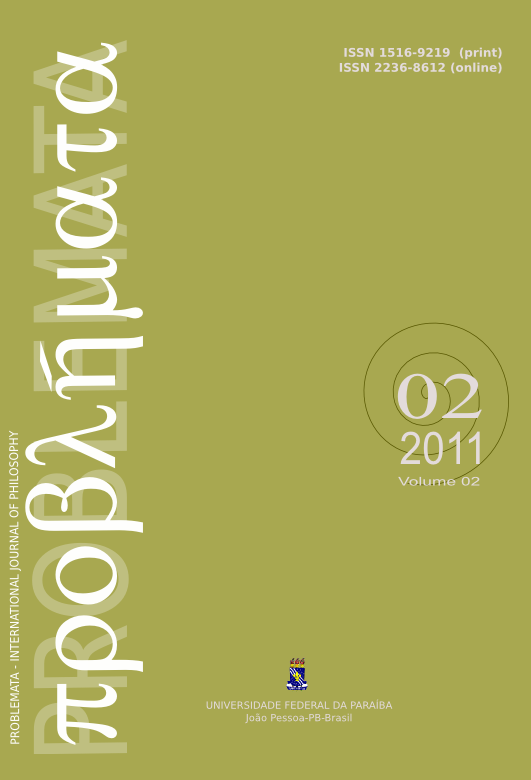SCHEMATISM, HORIZON AND TRANSCENDENCE: Kant and Heidegger<a href="http://dx.doi.org/10.7443/problemata.v2i2.10857"><i> <b>[doi: 10.7443/problemata.v2i2.10857]</b></i></a>
DOI:
https://doi.org/10.7443/problemata.v2i2.10857Keywords:
esquematismo, ontologia, horizonte, transcendência, semântica transcendentalAbstract
ABSTRACT: The paper proposes a few steps from the reconstruction of Heidegger's interpretation of Kant's doctrine of schematism, highlighting the concepts of horizon and transcendence, as a condition of the previous function of the time in the Kantian schema of the concepts and temporality (Zeitlichkeit), on the schemes in ekstases fundamental ontology of Sein und Zeit. The theoretical approach follows in the first step, a phenomenological interpretation of the Critique of Pure Reason, undertaken by Heidegger and the second step aims to achieve a semantic interpretation of the schema of existential in Being and Time, in light of the semantic interpretation of transcendental philosophy, taken by Loparic.Downloads
Download data is not yet available.
Downloads
Published
2011-11-19
Issue
Section
Papers
License
Authors who publish with this journal agree to the following terms:
- Authors retain copyright and grant the journal right of first publication with the work simultaneously licensed under a Creative Commons Attribution License that allows others to share the work with an acknowledgement of the work's authorship and initial publication in this journal.
- Authors are able to enter into separate, additional contractual arrangements for the non-exclusive distribution of the journal's published version of the work (e.g., post it to an institutional repository or publish it in a book), with an acknowledgement of its initial publication in this journal.
-
- Authors are permitted and encouraged to post their work online (e.g., in institutional repositories or on their website) prior to and during the submission process, as it can lead to productive exchanges, as well as earlier and greater citation of published work (See The Effect of Open Access).





